Organic Vegetables
LESOTHO
A favourable climate, low labour costs and access to major global markets give Lesotho a comparative advantage for cultivating and processing organic vegetables for export.
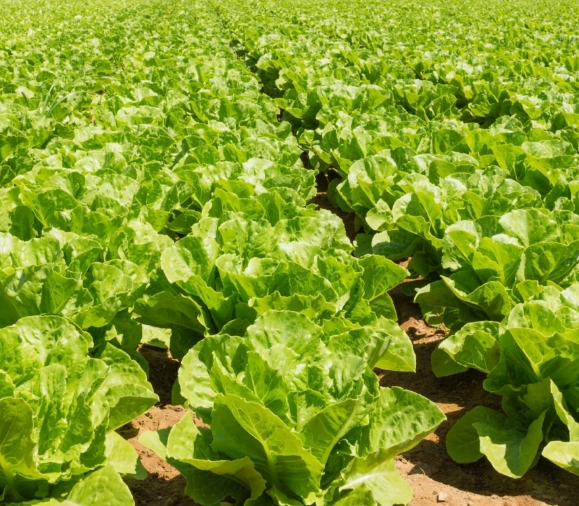
Introduction
Responding to rising demand for organic vegetables, this project involves farming organic vegetables and processing them into canned or frozen food, paste, purée, or soup for export.
Vegetables could be sourced from small scale producers throughout Lesotho. In addition, there is an opportunity to invest in commercial farming. Investments in new production and storage facilities form part of the project.
Processing would take place in Maseru, Leribe, Quthing and Mohales Hoek.
Convenient
export to neighboring
markets in the
SADC region.
Strengths &
Opportunities
Lesotho has mountainous terrain with a climate exceptionally well-suited to growing high-quality crops for export. Rainfall is adequate to sustain healthy agricultural activity.
The impact of climate change on Lesotho has been less severe than other countries in the region.
Lesotho is a predominantly agrarian country.
OF THE POPULATION
70%
Unskilled labour is available, social costs are low and labour relations are relatively harmonious.
The vegetable sector is characterised by subsistence farming by households with a focus on food security, while the surplus is sold in the informal market. There is an opportunity to make more efficient use of local produce by providing production facilities in Lesotho. Foreign companies are permitted to own land in Lesotho (provided that a 20% stake remains in local ownership), which allows them to invest in commercial farming.
Potential crops include:
- cabbages
- tomatoes
- spinach
- carrots
- butternuts
- beetroot
- pumpkins
- potatoes
- green peas
- onions
- cucumbers
- lettuces
- green onions
- green beans
- radishes
- soybeans
- mushrooms
- watermelons
Potential products for exports are:
canned or frozen food, paste, purée or soup.
Related investment opportunities include:
food processing equipment, cold storage, packaging and logistic facilities; and irrigation equipment or other farm machinery.
On the job training and mentoring will be needed to equip the workforce for processing and food handling. There is a role for a partnership between investors and local agricultural extension services in supporting new technologies, including better seeds and cultivation techniques. The government has put regulations in place that support the cultivation, processing and export of vegetables.
Tax Incentives:
The Lesotho government levies a corporate income tax of just 10% on farms and agro-processing firms. It also subsidises agricultural inputs.
This project would align with SDGs 1, 2, 8, 9, 10 and 15.
Strengths &
Opportunities
As global demand for healthy food increases, there are opportunities to invest in Lesotho’s organic vegetables sector and focus it on exports.
Given Lesotho’s geographical position, good external road links and tariff-free access to the market, Lesotho can begin by feeding into the South African value chain, taking advantage of rules permitting Lesotho producers to contribute to South African exports under the EU–SADC EPA rules of origin.
The EU–SADC economic partnership agreement (EPA) offers Lesotho preferential tariffs for food exports to the EU. These preferences become more advantageous the more processed a product is, but they depend on Lesotho adhering to EU food standards. Lesotho could also export to the USA under the African Growth and Opportunity Act (AGOA), subject to compliance with US food standards.
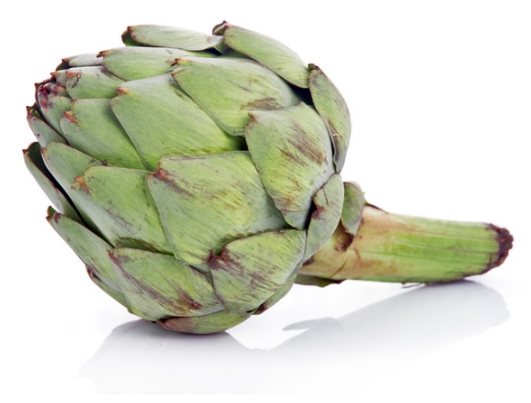
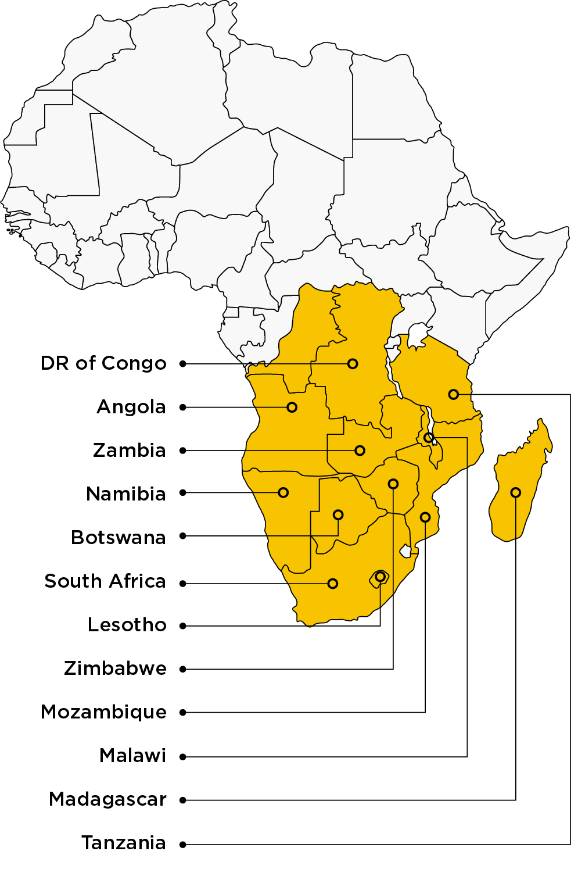
Lesotho has abundant fertile land, in mountainous surroundings, perfect for organic vegetable farming.
Financial Analysis
TOTAL INVESTMENT
A total investment of approximately:
LSL* 13.4m
comprising fixed assets of LSL 12.1m and initial working capital of LSL 1.2m will be required for the establishment of the Organic Vegetable enterprise. The graphs below illustrate a financially viable operation with the opportunity expected to generate a profit throughout its operational life.
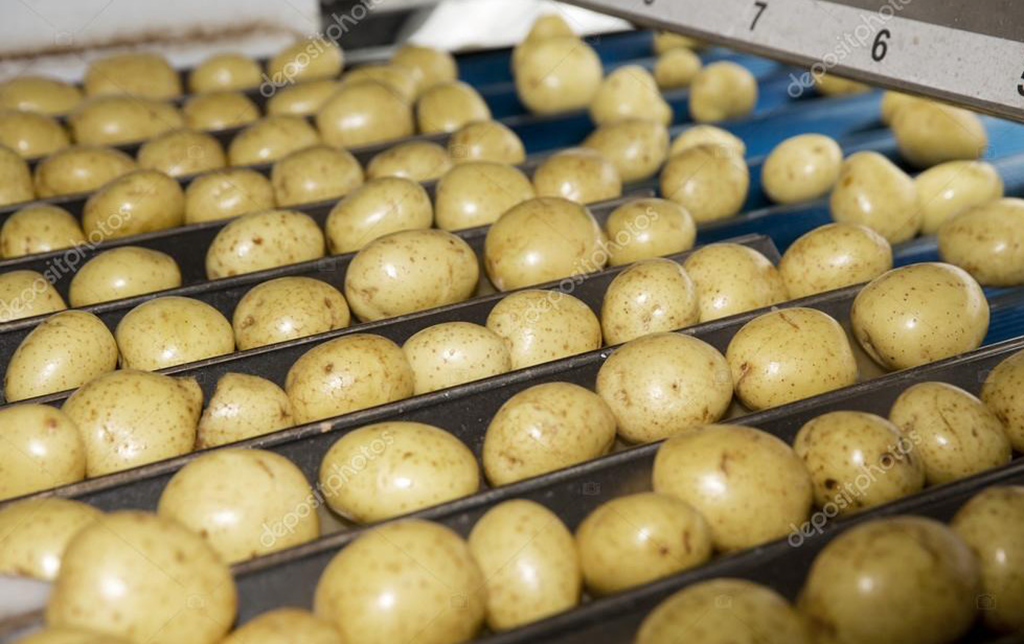
In addition to the positive NPV and IRR, the initial investment cost of the project is expected to be fully recovered in year 6. The investment opportunity also responds favourably to the country’s developmental objectives through its positive socio-economic impact in terms of employment creation, economic agglomeration and potential forex earning opportunities.
The enterprise’s annual net profit after tax increases from
LSL 2.5m
LSL 12.2m
in year 10. Similarly, the projected cash flows of the envisaged project indicate that it will generate positive net cash flows throughout the 10-year operational period.
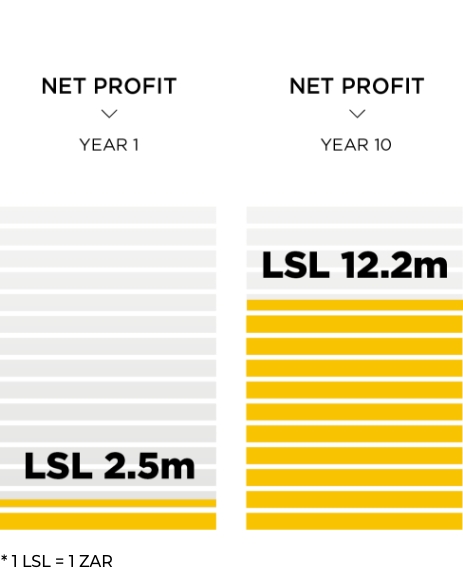
Financial Analysis
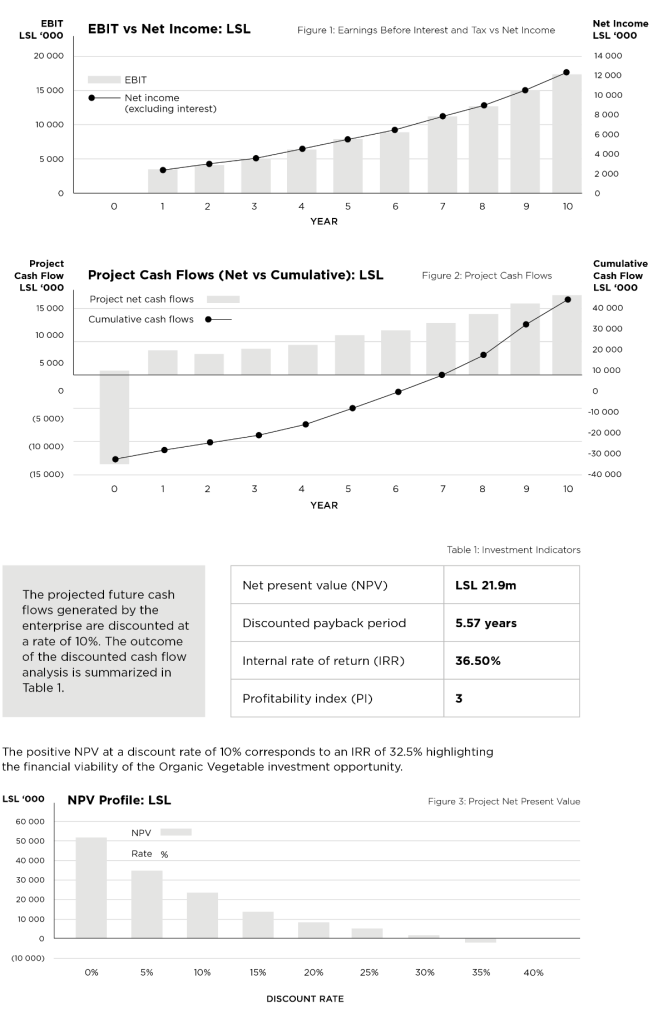
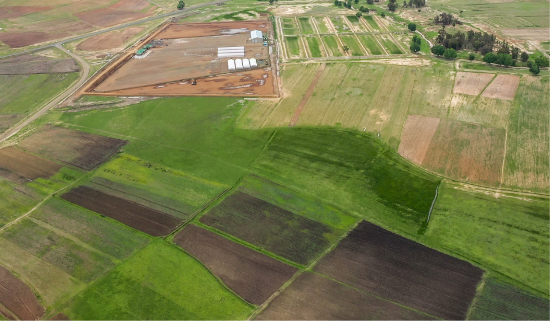
Possible site for organic vegetables.
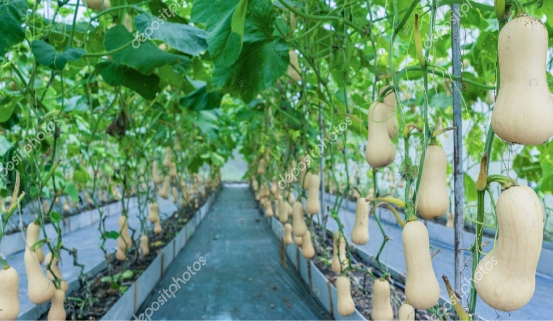
Butternut crop.
The financial analysis of the Organic Vegetable investment opportunity is computed over a ten-year period. Revenue and expenditure projections are in line with industry growth prospects and market potential and have been informed by and benchmarked against industry standards and norms. In addition, assumptions relating to inflation; depreciation and salvage value; and company tax, have been worked out based on the existing laws and directives of the country. The figures above represent high level estimates as of January 2021 and are not derived from a full feasibility study. Investors are advised to conduct their own due diligence.
MS. PHOMOTSO MAJODINA
General Manager (a.i)
Investment and Trade Promotion Unit
Lesotho National Development Corporation
Email: [email protected]
MS. MAMPHAPHATHI MOLAPO
Officer: Investment Promotion, Agriculture
Lesotho National Development Corporation
Email: [email protected]
MS. MPHO MAPHIKA
Officer: Investment Promotion, Agriculture
Lesotho National Development Corporation
Email: [email protected]
